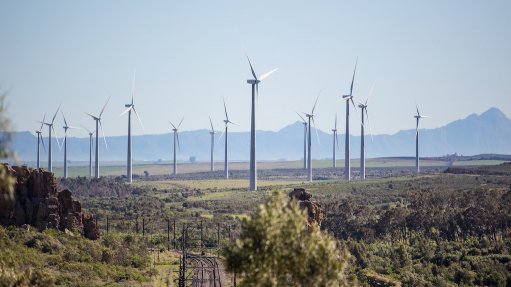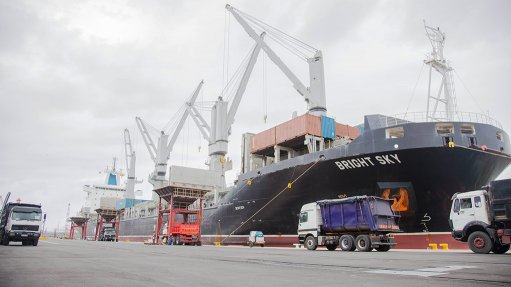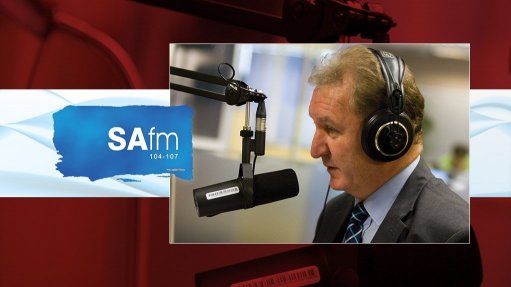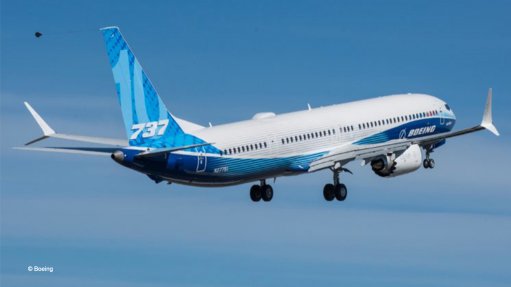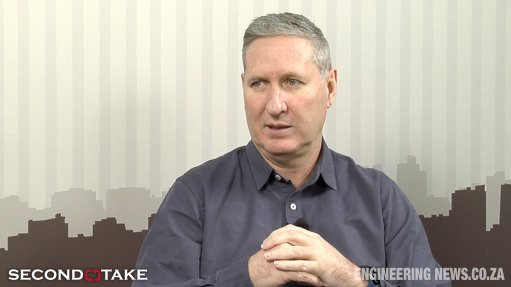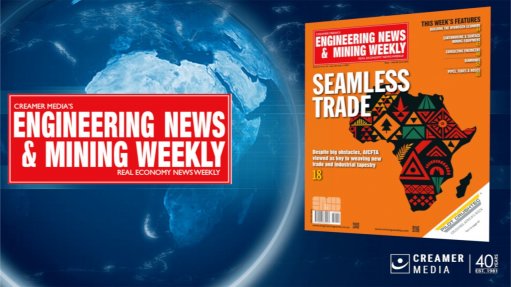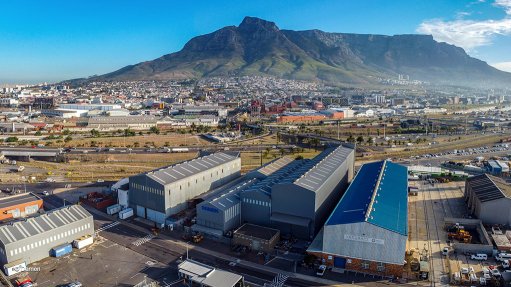Organisation looks into industry challenges

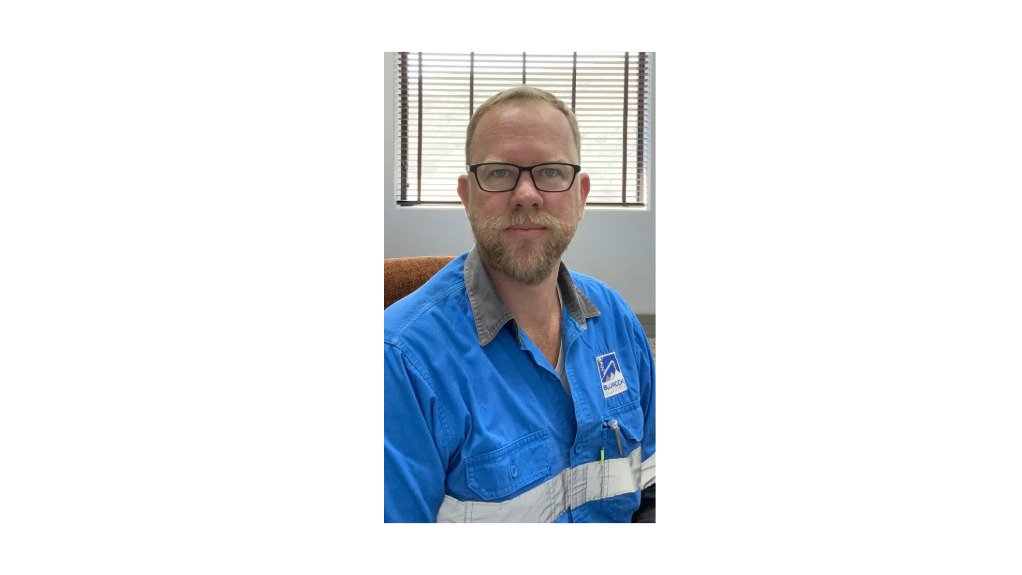
JEREMY HUNTER-SMITH High regulatory and legislative barriers in the quarrying sector are constraining its growth
High regulatory and legislative barriers in the quarrying sector are constraining its growth, says quarrying and surface mining professional body Institute of Quarrying Southern Africa (IQSA) chairperson Jeremy Hunter-Smith.
This is compounded, he says, by the 20% downturn in the construction industry in the first quarter of 2024. A country’s growth in often gauged by the volume of infrastructure projects and South Africa has significant potential for growth, with a drive for infrastructure development needing to come to the forefront.
“Quarries throughout the country strive to produce quality materials for the required infrastructure projects, but there are many challenges that are negatively affecting South African industries and quarrying is in the same boat.
“There are many factors contributing towards the challenging scenario including loadshedding, illegal mining, cost of diesel, just to name a few. But through industry associations such as the Aggregate and Sand Producers Association of South Africa (Aspasa) and IQSA, industry members rally together to share their knowledge to best overcome the challenges in order to keep the country’s growth path on track,” says Hunter-Smith.
Illegal mining operations pose a significant challenge, and Hunter-Smith highlights that “tens of thousands of tonnes” of quarrying materials are illegally mined each year.
He adds that illicit operations and borrow pits are a “massive challenge” for any mining right holder: “Mining right holders are required to ensure that they are capable of sufficiently adhering to the mine’s work programme, an authorised environmental management programme and a social labour plan, whereas borrow pits don’t have that in place”.
“This plays a massive role, with smaller mining right holders that are rurally-based relying on local government projects, often failing to ensure they meet their mining right requirements,” says Hunter-Smith.
He also indicates that loadshedding has had a negative effect on many quarrying operations, hampering production outputs and leading to job losses, or threatening to do so, owing to curtailed or otherwise economically- unfeasible operations.
In addressing the challenges posed to IQSA and Aspasa members, Hunter-Smith says the organisation will continue to investigate their root causes and engage with the relevant legislative bodies to address arising and persisting issues.
In highlighting the importance of quarrying in facilitating the development of infrastructure projects in the country, he says “aggregates are essential products without which [infrastructure cannot be built].Aggregates can simply be dug out the ground – it’s the focus and efforts of Aspasa and IQSA to ensure this is done sustainably and to create awareness of aggregates as a significant contributor for the economy.”
Further, he highlights that many construction projects are hampered as a result of protests and undue external influences, which in turn, have a direct effect on the quarrying operation supplying the project, adding additional operational costs.
Membership Benefits
Hunter-Smith highlights that any individual within the quarrying industry will benefit from becoming a member of IQSA, owing to the institutes’s constant drive to network, by bringing suppliers and industry leaders together, as well as its focus on training.
Hunter-Smith adds that any small surface mine can benefit from becoming an Aspasa member because the organisation has a well-crafted safety and environmental system, which stands to benefit quarry operators particularly in complying with the regulations.
He notes that Aspasa provides members with comprehensive documents and advice pertaining to the regulatory, legislative and auditing requirements required by a quarry operator.
Reflecting on its commitment to skills development and developing young talent, IQSA seeks to highlight and increase educational pathways as a way of future-proofing the sector’s workforce.
The organisation coordinates a young professional membership body, whose work is highlighted at its yearly conference. This conference also provides significant networking opportunities for young professionals affiliated with IQSA.
Through the young professionals body, members can submit professional papers that assess the impact of quarrying, and offer solutions to pertinent social, financial and environmental challenges in the industry.
In further efforts to recognise youth in quarrying and uplift young members, the IQSA also raises funds to send one such young professional abroad as a means of exposing them to a global quarrying footprint.
Given that technical skills are in high demand in the quarrying industry, the organisation says this initiative could help companies maintain their competitive advantage, consequently developing a successful and innovative record, all of which are key to operational excellence, says Hunter-Smith.
Meanwhile, he adds that greater efforts should be undertaken to educate the public on the importance of the quarrying sector and what it provides for the economy and South Africa’s industrial and infrastructure development endeavours.
Such efforts include the construction of roads and buildings, the delivery of vital minerals to the agriculture sector and supporting electricity generation, concludes Hunter-Smith.
Comments
Press Office
Announcements
What's On
Subscribe to improve your user experience...
Option 1 (equivalent of R125 a month):
Receive a weekly copy of Creamer Media's Engineering News & Mining Weekly magazine
(print copy for those in South Africa and e-magazine for those outside of South Africa)
Receive daily email newsletters
Access to full search results
Access archive of magazine back copies
Access to Projects in Progress
Access to ONE Research Report of your choice in PDF format
Option 2 (equivalent of R375 a month):
All benefits from Option 1
PLUS
Access to Creamer Media's Research Channel Africa for ALL Research Reports, in PDF format, on various industrial and mining sectors
including Electricity; Water; Energy Transition; Hydrogen; Roads, Rail and Ports; Coal; Gold; Platinum; Battery Metals; etc.
Already a subscriber?
Forgotten your password?
Receive weekly copy of Creamer Media's Engineering News & Mining Weekly magazine (print copy for those in South Africa and e-magazine for those outside of South Africa)
➕
Recieve daily email newsletters
➕
Access to full search results
➕
Access archive of magazine back copies
➕
Access to Projects in Progress
➕
Access to ONE Research Report of your choice in PDF format
RESEARCH CHANNEL AFRICA
R4500 (equivalent of R375 a month)
SUBSCRIBEAll benefits from Option 1
➕
Access to Creamer Media's Research Channel Africa for ALL Research Reports on various industrial and mining sectors, in PDF format, including on:
Electricity
➕
Water
➕
Energy Transition
➕
Hydrogen
➕
Roads, Rail and Ports
➕
Coal
➕
Gold
➕
Platinum
➕
Battery Metals
➕
etc.
Receive all benefits from Option 1 or Option 2 delivered to numerous people at your company
➕
Multiple User names and Passwords for simultaneous log-ins
➕
Intranet integration access to all in your organisation







